-
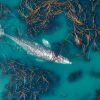 +28 +1
+28 +1These Gray Whales Are Shrinking, and Scientists Aren’t Sure Why
Gray whales in a small group that sticks close to the shores of the Pacific Northwest appear to be shrinking—and shockingly quickly
-
 +41 +1
+41 +1Can a map of the ocean floor be crowdsourced?
Many maps of the ocean floor are decades old. The race is on to properly chart them by 2030 – and crowdsourcing could be part of the answer.
-
 +22 +1
+22 +1How Far Will Salmon Swim for a Craft Beer?
In Oregon, researchers hope a surprising aroma will lure stray salmon back to their home hatcheries.
-
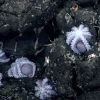 +21 +1
+21 +1Watch Baby Octopuses Hatch from a Surprising Deep-Sea Nursery
The tiny baby octopuses—each about the size of a nickel—emerged from soft, membranous eggs, clutched in their mothers’ protective embrace. One by one the hatchlings gracefully unfurled their delicate tentacles and floated away into the abyss.
-
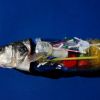 +27 +1
+27 +1Ocean plastic pollution is filtering up into the fish that we eat
"Current law allows plastics producers to discharge trillions of small pre-production plastic pellets directly into waters with little to no repercussions"
-
 +3 +1
+3 +1Do not feed the seals: How Belgium is protecting its newest residents
Seals had disappeared from Belgium by the end of last century but now their numbers are on the rise.
-
 +18 +1
+18 +1Watch moment trapped whale is cut free from net
A 10m humpback whale has been rescued after becoming entangled in a shark net off Australia’s Gold Coast. Workers used delicate equipment to cut the whale free during the early morning operation. Environmental groups have pushed for the removal of nets during the whale migration season, which sees tens of thousands of the mammals pass Australia’s east coast.
-
 +26 +1
+26 +1Sea Turtle Given the Very First 3D-Printed Shell Brace Is Still Thriving Years Later
Who knew a 3D-printer could save a turtles life like this?
-
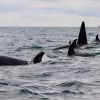 +3 +1
+3 +1What do killer whales eat in the North Atlantic? Fat's the question!
Here is a killer whale fact for you: despite decades of intensive research, we still do not know for sure what killer whales eat in most regions of the world. Killer whales are top predators, and the amount and types of animals they eat can greatly impact a whole ecosystem. To figure out how killer whales can affect communities, we first need to know what they like to eat and how much of it they eat.
-
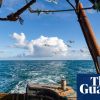 +4 +1
+4 +1‘Phenomenal loophole’ in quotas could lead to massive overfishing
A push by EU fishing nations including France and Spain to weaken how fish catches are reported could see massive overfishing of endangered species and even “call into question” the whole point of setting quotas, according to confidential EU documents seen by the Guardian. Europe’s most commonly fished species – which include mackerel, tuna, Atlantic herring and sprat – could be threatened under the latest proposal, which would apply to all vessels in EU waters.
-
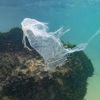 +21 +1
+21 +1Plastic pollution in oceans has reached 'unprecedented' levels in 15 years
Plastic pollution in the world's oceans has reached "unprecedented levels" over the past 15 years, a new study has found, calling for a legally binding international treaty to stop the harmful waste.
-
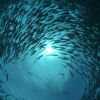 +18 +1
+18 +1The invisible ocean crisis of toxic chemicals used in plastics
Around 8 million tons of plastics enter the oceans every year. Beyond the visible litter lurks a growing invisible crisis of toxic chemicals, and studies show that these chemicals are spreading into every nook and cranny of our oceans, food and bodies.
-
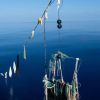 +12 +1
+12 +1Deal to curb harmful fishing devices a ‘huge win’ for yellowfin tuna stocks
Agreement to restrict use of aggregating apparatus in the Indian Ocean hailed as a ‘giant step forward’ for conservation of stocks
-
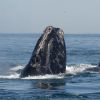 +18 +1
+18 +1U.S. refuses calls for immediate protection of North Atlantic right whales
The U.S. government has denied two petitions to immediately protect critically endangered North Atlantic right whales during the species’ calving season, raising concerns that this population of whales will continue to decline without intervention. There are currently about 340 of these whales left, making them one of the most threatened cetaceans in the world.
-
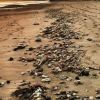 +12 +1
+12 +1Mystery of England’s crab and lobster die-offs deepens as experts find no clear cause
The mystery behind the deaths of thousands of crabs and lobsters along England’s north-east coast has developed a further twist, with experts saying it could be down to a new disease. The die-offs, which began in autumn 2021 and recurred at various points in 2022, affected at least 70km (43 miles) of the coastline, with some of the crustaceans showing an unusual twitching while dying.
-
 +12 +1
+12 +1One man’s lonely quest to save the world’s corals draws a following
After working in obscurity for decades, Anuar Abdullah is emerging as an increasingly influential, somewhat unlikely expert on how to revive the world's coral reefs.
-
 +4 +1
+4 +1Abandoned WWII Shipwreck Has Altered The Ocean's Microbiology For 80 Years
There's a certain romance and mystique associated with shipwrecks when seen as ancient artifacts hiding in the gloom.
-
 +13 +1
+13 +1The Ocean Should Have the Legal Right to Life to Combat Climate Change, Researchers Say
Earth’s global ocean should be considered a living entity with its own set of rights and protections, a paradigm shift that is informed by Indigenous worldviews and the burgeoning tradition of Earth law, according to a new article written by an interdisciplinary team of researchers.
-
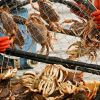 +18 +1
+18 +1Alaska Canceled Snow Crab Season for the First Time Ever Because All the Crabs Are Gone
For the first time in history, the Alaska Department of Fish and Game has canceled snow crab season due to the dwindling numbers of crabs available. This decision follows a report released in August that showed that snow crab abundance in Alaska is on a steep decline, with stocks down 90 percent in the last two years. Researchers have yet to come up with a cause for this decline, but they have already agreed—climate change is a main factor.
-
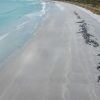 +19 +1
+19 +1Nearly 500 pilot whales dead after two mass strandings in New Zealand
Hundreds of pilot whales are dead after two mass stranding events occurred days apart in New Zealand, conservation officials announced on Wednesday. The strandings continue a deadly trend that has rocked the Oceania region in recent weeks.
Submit a link
Start a discussion




















